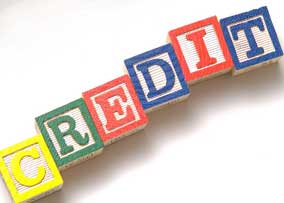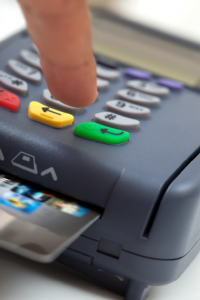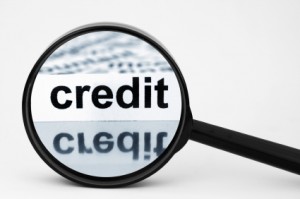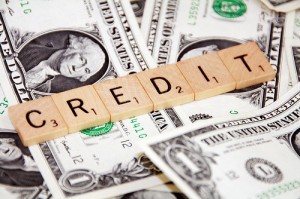September 2, 2012
 Building your credit is not easy and should be a task that is not taken lightly. There are many different ways to build credit and you should be aware of which ways are effective and which ways are not. No one really knows the formula that the credit bureaus use to come up with a person’s credit score but there is enough knowledge that the financial professionals have created some tips for building credit.
Building your credit is not easy and should be a task that is not taken lightly. There are many different ways to build credit and you should be aware of which ways are effective and which ways are not. No one really knows the formula that the credit bureaus use to come up with a person’s credit score but there is enough knowledge that the financial professionals have created some tips for building credit.
This rest of this article will give you some simple tips of how to build your credit. Of course if your credit is clean improving your score will take no time at all. However if your credit score is in the poor category improving will take some time.
Get A Secured Credit Card
If you have a bad credit rating or no credit at all an unsecured credit card may be difficult to receive. This is where a secured credit care may come in handy. Even though these cards are secured with your own money they are still reported to the credit bureaus so if you use the card correctly and continue to pay your score will rise.
Have A Cosigner For A Loan
Another way to establish credit if you have bad credit or no credit at all is by applying and receiving personal loans for bad credit with a cosigner. A cosigner is someone who will sign on the loan and will be responsible for the loan in the case of you defaulting on the loan. As long as the payments are made on time and you follow the terms of the loan your credit score will improve.
Check Your Credit Reports
This is probably an obvious tip but if you are aware of where you are currently standing when it comes to your credit score you will know what it will take to build better credit.
Open A Personal Bank Account
Often times a personal bank account is overlooked. This is because the bank does not report to the credit bureaus. However if you keep your account in good standing and have a good history with your bank it will be easy to get instant payday loans through the bank that will offer a good interest rate.
Understand Your Credit Score
What this means is that you need to know how your credit scores are formulated. Once you know that you will be able to do what needs to be done to build your credit history. You will know if you need to get a credit card to help raise your score or a personal loan of some sort.
Keep Your Credit Cards Open
If you are trying to build your credit closing your credit card accounts will decrease your credit score. It is important to know that even if you are not using your credit card just having it on your credit file will increase your credit score. However it is best to use your credit cards but keep the balance on them low.
Pay Your Bills
Believe it or not if you do not pay your monthly bills even your utility bills can ruin your credit history. These will be reported to the credit bureaus if you default.
Do Not Apply For Loans or Credit Cards
This is a pretty obvious tip. If you do not need a loan or a credit card do not apply for one? Every time you apply for one of these forms of credit it will lower your score.
Cut Up Your Credit Cards
Rather than close out your credit card accounts to keep yourself from using them it is a better idea to cut them up. By not having the access to them the account will stay open but will have a balance of nothing on them because you will not be using the card.
Use Your Credit Responsibly
Using your credit responsibility is the best tip of them all. If you keep your credit cards with a low balance on them you will find that your credit score will continue to rise. By not using any of the credit that you have could actually hurt you.
Tags:
credit,
Credit Card,
economy,
financial planning,
money
July 10, 2012
 If you have several credit cards that you use frequently you may find yourself with an unexpected charge or a late charge because you are not aware of a change in one or all of your credit card provider’s policies or charges. A single late fee or an added service charge can cause you unneeded and unnecessary credit problems.
If you have several credit cards that you use frequently you may find yourself with an unexpected charge or a late charge because you are not aware of a change in one or all of your credit card provider’s policies or charges. A single late fee or an added service charge can cause you unneeded and unnecessary credit problems.
Credit data is not just a matter of your current balance and available credit. You need to have current updates about your APR (Annual Percentage Rate) changes to your APR, due date for new charges to your cards, late fee charges, credit limit changes, deposits, and due dates for each card you have and use.
This information can help you avoid extra unnecessary late fees and keep you advised of what you Credit Card Company is doing to make money using you as their source of income.
Businesses need credit data like the number of transactions per day, payment due dates, alerts to high transactions, and an up to the minute transaction summary with details to manage their cash flow and insure profitability.
Individuals and businesses need a single website to go to check all their credit cards and get all the unique credit card data they need to know for every credit card they own and use. You need credit card data provided to you that is timely and fresh and provides you with all the information you need to make informed choices and avoid paying extra fees that you do not know are coming.
Credit data like new bill notification, bill due notification, balance limit near 80 percent, balance limit near 90 percent, and balance limit breached can alert you to take action that saves you money.
APR rates can change on a daily basis and a surprise change in APR can wreck even the most carefully planned budget.
Fresh credit card data updated on a weekly basis that covers every major credit card and all the credit card data you need to know to keep your credit card from causing you a credit problem or even a bad mark on the big three credit reporting agencies is essential.
If you own or use several different cards finding all the credit data you need to manage your credit cards successfully can be a real chore if you have to look at every card site individually and hunt for the data you need. Most credit card companies are really good at hiding the information. They have a reason. The reason is making money from you.
One place you can go to get all the credit card data you need to make informed choices with up to date information is pageone.com. You will find all the major credit cards with an easy to understand updated listing of all the credit card data you need to manage your credit cards to your advantage. This is the only site on the Internet that provides all the data you need for your individual or business credit card accounts. This assessment is based on pageonce.com user statistics.
Knowing and using credit card data intelligently has many advantages
Knowing when a bill is due has several advantages. You avoid late fees of course but there is more. You can time the payment of you bills so that you maximize the amount of interest your money makes in your checking or savings account. Paying a bill at the very last minute means credit card companies do not get to use your money to make money. You get to use your money to make money.
Knowing when bills are due and how close you are to your credit limit keeps you from going over your credit limit. One late fee can change the APR and the credit limits on every card you have as soon as a credit reporting agency updates your file with a let charge and spreads the news to every credit card company you have a card with.
Knowing when a change in fees, APR, and charges has occurred with your credit card puts you ahead of the curve compared with most people. This means no surprises on your next credit card bill and no paying extra fees.
Credit card companies want your money from added fees but you do not have to ever pay a surprise fee again. You just need to have a timely adviser that lets you know when new fees and charges have occurred.
Tags:
Bills,
budgeting,
Caredit Cards,
credit,
financial planning,
money,
savings
June 25, 2012
 It might seem counterintuitive to some, but having a few credit cards in your wallet to be used in a smart manner is an excellent way to improve your credit score. As you know, having a high credit score is one of the keys to a financially successful life, if your score is mediocre to low then you will have a harder time acquiring loans, and the payments that you will make will pretty much always cost you more in the long run.
It might seem counterintuitive to some, but having a few credit cards in your wallet to be used in a smart manner is an excellent way to improve your credit score. As you know, having a high credit score is one of the keys to a financially successful life, if your score is mediocre to low then you will have a harder time acquiring loans, and the payments that you will make will pretty much always cost you more in the long run.
Millions upon millions of people get trapped by credit card debt every year, simply because they do not use the cards in a fiscally responsible way, and this not only causes a large debt, but it also can have quite a few personal implications as well.
The first way a credit card can help is that it shows a credit history. Always try not to cancel any credit cards because you have decided not to use them anymore, a long credit history, even for a card that has little use is far better than one that is only a few months or a year along because you decided to close all your old cards from five years ago. Anything that is new will show up with an inquiry on your credit report, which will bring your score down a bit for at least a few months and maybe up to a year, so try to hang on to as many older cards as you can.
If you do have some of these old credit cards, focus on using them every few months to buy something, for example fill up your tank with petrol using one of these cards every 2-3 months. This way the card appears to be active on your credit history, but it will not cause you any sort of undue burden to pay off when the bill comes due.
Another way you can use a credit card to your advantage is to ask for higher limits. Especially on those cards that are older. Higher unused limits will always help increase your score, especially if you keep your credit card debt at or below about 35% of the limit amount. It also shows that the credit card company has found you to be a trustworthy customer who is capable of paying bills and not racking up large amounts of debt.
The most important thing, however, is to always pay your bill on time. The very best option is to pay your bill in full and on time, but at the very least always aim to pay above the minimum balance and before it’s due. Nothing will be able to improve your credit score if you have consistently late payments each month; that will actually hurt your chances of getting any sorts of loans or other credit cards in the future.
Tags:
budgeting,
credit,
Credit Cards,
Credit Schore,
Debts,
financial planning,
money,
personal finance
June 21, 2012
 Unemployment is not an uncommon thing today. A lot of people become find it hard to find one because they are either over-qualified or the job is a little too down for them. But did you know that you can now make money online? There are a lot of jobs online that will only require you to stay at home, it is called freelancing. Freelancing jobs can be a source of extra income for some. People do it to save money for paying the bills, the rent, and the works. Freelancing is considered a legit job, so you still have to do a credit check regularly but then again, this can also improve your credit score. Follow these tips to balance earning money and maintaining your credit.
Unemployment is not an uncommon thing today. A lot of people become find it hard to find one because they are either over-qualified or the job is a little too down for them. But did you know that you can now make money online? There are a lot of jobs online that will only require you to stay at home, it is called freelancing. Freelancing jobs can be a source of extra income for some. People do it to save money for paying the bills, the rent, and the works. Freelancing is considered a legit job, so you still have to do a credit check regularly but then again, this can also improve your credit score. Follow these tips to balance earning money and maintaining your credit.
- You are going to need to pay your bills at every end of the month. If you get to work as a freelancing designer, writer, consultant or editor consistently, then this job can help you with pay for it and not miss out on payments. Missing on payments will hurt your credit score and it may affect your credit report that clients usually look for. This is what they will use to find out if you are trustworthy and responsible so taking care of it is a priority.
- Another way to earn money online is by blogging. Companies or people can pay you to put up their advertisements on your site. You can also get paid for sharing opinions and some product reviews. Posting valid survey tests on your site for others to answer will also help you earn money. You can choose to work part time or full time, but of course, the more time you spend with freelancing, the more money you will earn.
- Some people get their salary only once a month, which can make budgeting a tad more difficult. Clients sometimes even miss out on that date and you have to wait for next month’s payday. Your bills, however can’t afford to wait that long, unless you want to jeopardize your credit score. Managing your money and earning online can prevent you from missing out on your bills. You just have to manage your money wisely and set your priorities first.
- Do a credit regularly to keep track of your report and to make sure that everything is in good shape. Some employers do a credit check without you knowing, and good credit report may land you the job or not. If you do a good job, your employer might even recommend you to others.
Your credit and your job will always be as one. There may be a lot of ways to earn money, but remember that making money will not be easy but if you can manage it well then you’ll be able to pay your bills, keep your credit healthy and keep a consistent job. Managing debt is a key to high credit score which can make your financial life better as credit score is a pass that makes you look good by the lenders and the banks.
Jack is a financial blogger and love to share financial tips to manage personal finances, improve credit score and monitor credit report free.
Tags:
budgeting,
credit,
economy,
financial planning,
money,
savings
June 13, 2012
 Many new business owners think their business credit score is just numbers that fluctuate. Well it is much more, your business credit score can make or break you financially. Your credit score is numbers that tells lenders how well you have been at paying your bills and helps them to determine if they would like to offer you a loan. A low credit score lowers your chances but with a high credit score you are open up great financing options to your business.
Many new business owners think their business credit score is just numbers that fluctuate. Well it is much more, your business credit score can make or break you financially. Your credit score is numbers that tells lenders how well you have been at paying your bills and helps them to determine if they would like to offer you a loan. A low credit score lowers your chances but with a high credit score you are open up great financing options to your business.
What is a Business Credit Score?
Your business’s credit score is number that shows lender just how well you have been at meeting your payments and how heavy your business debt is. Lenders or other agencies looking to do business with you can take a quick look at your business’s credit score and determine if they would like to offer you a loan or what type of loan you would qualify for. Your credit score lets these lenders know if your business is a good risk or not, if your worthwhile to invest in.
The Importance of A Good Business Credit Score
In our ever changing economy lending is not what it once was, today your business needs a high credit score just to be considered for a business loan. The higher your credit score the more financing benefits you will have such as low interest rates, better terms and conditions, larger loan amounts as well as better odds of approval.
How to Maintain A Good Business Credit Score
Keeping track of your businesses finances, not over borrowing and making large payments early or on time is great for your credit rating. Your credit score is based off your business payment history and borrowing history so if your business borrows beyond your means and makes minimum payments late or not at all your credit score is going to suffer. To keep a good clean credit score keep up your finances with on time or early payments for over the minimum amount, then you can sit back and watch your score increase as well as increase your businesses financing options.
Tags:
Business,
credit,
Credit Score,
debt,
financial planning,
money
 Building your credit is not easy and should be a task that is not taken lightly. There are many different ways to build credit and you should be aware of which ways are effective and which ways are not. No one really knows the formula that the credit bureaus use to come up with a person’s credit score but there is enough knowledge that the financial professionals have created some tips for building credit.
Building your credit is not easy and should be a task that is not taken lightly. There are many different ways to build credit and you should be aware of which ways are effective and which ways are not. No one really knows the formula that the credit bureaus use to come up with a person’s credit score but there is enough knowledge that the financial professionals have created some tips for building credit.




Recent Comments